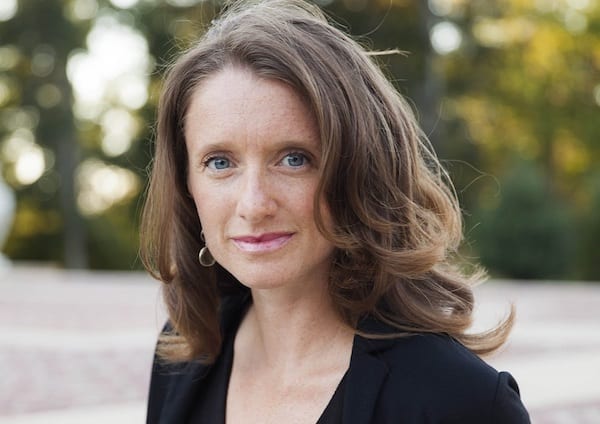And Citigroup has this week become the first to respond, disclosing its wage gap data and committing to close it in three countries including the US, UK and Germany.
The push has come from activist investor Arjuna Capital, led by Natasha Lamb. Arjuna has also put the pressure on Bank of America, Mastercard, American Express, JP Morgan and Wells Fargo (all have so far rejected shareholder resolutions asking for detailed pay gap reports).
Lamb said Citigoup’s move marks a “tipping point” for Wall Street Banks.
“We expect women will not only receive the pay they deserve at Citi, the company will reap the benefits of talent acquisition and retention so that more women can move into leadership,” she said in a statement. “Other leading banks can either follow Citi’s example on gender pay or risk further laggard status on issues of concern to women.”
Lamb, recently named by Bloomberg Businessweek as one of the 50 most influential people defining global business, files shareholder resolutions at companies in advance of meetings. In 2016, she led a push by Arjuna to get seven tech companies, including Amazon and Expedia, to disclose their gender pay gaps
She told Forbes at the time: “Our clients are interested in investing in such a way that they’re having a positive impact on the world with their money. We pick issues that we think are good for society, good for the environment, and will be good for the companies that manage them well.”
Citigroup claims the pay gap between men and women is small, at around just 1%. It will close pay gaps through pay rises, as well as compensation for other individuals whom the analysis found are being underpaid.
In the UK especially, the move is timely, given employers with more than 250 staff will be required to publish their gender pay gaps by April 2018 . Like Australia, the financial services sector’s pay gap is one of the worst in the country, at an average of 24%.
In a statement online, Citigroup said that it focus will be on further itself as an “employer of choice for employees of diverse backgrounds”.
“We found that women are paid on average 99% of what men are paid, and minorities are paid on average 99% of what non-minorities are paid.”

